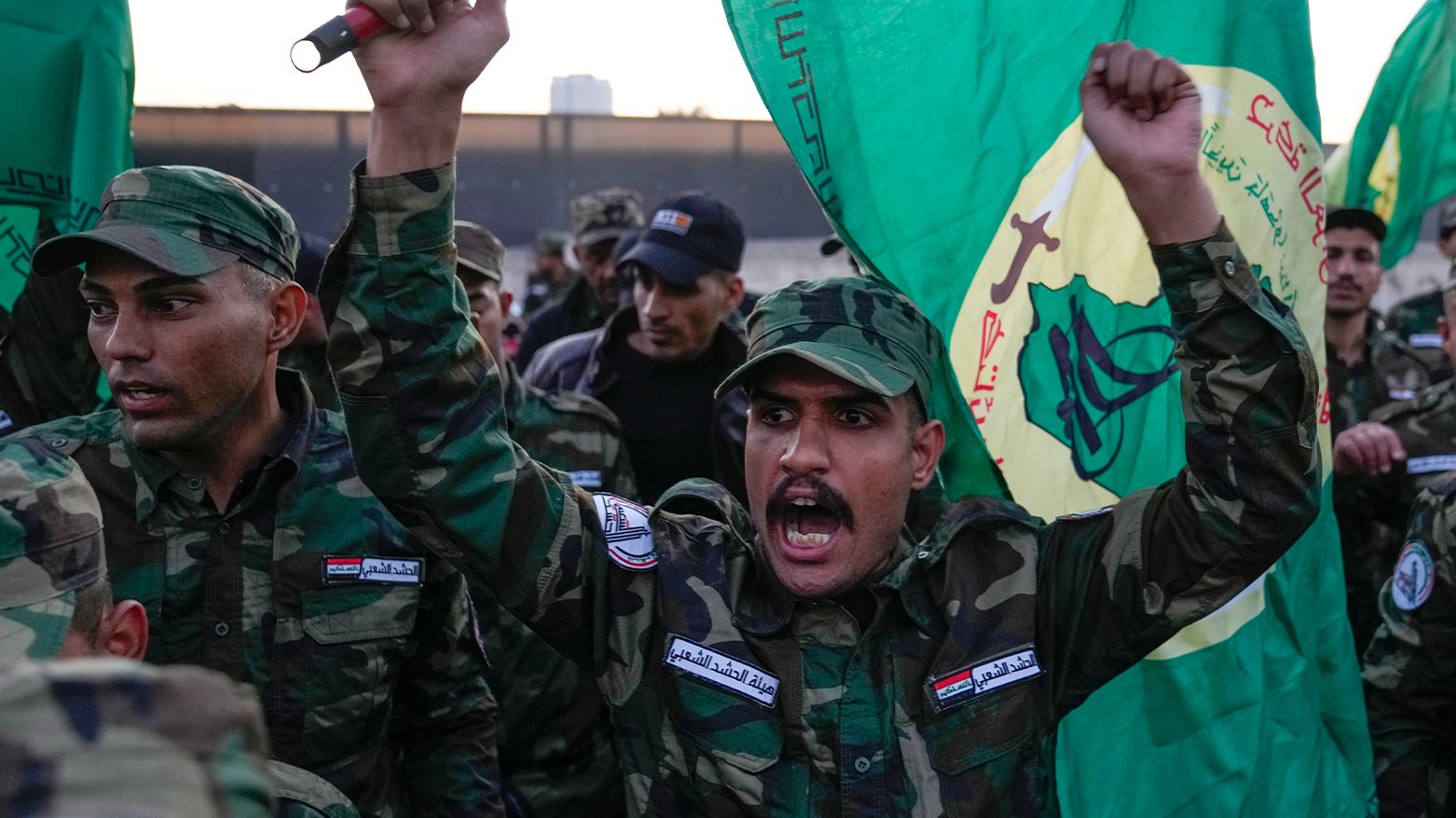Iraqi Parliament to Begin First Reading of Contentious PMF Bill
A report by The Washington Institute for Near East Policy warns that the PMF Service and Retirement Law is less about genuine reform and more about securing political and financial advantages for Iran-aligned militia factions.

ERBIL (Kurdistan24) – The Iraqi Parliament is set to resume its legislative sessions Monday at 8:00 PM, with the contentious Popular Mobilization Forces (PMF) Service and Retirement Law topping the agenda for a highly anticipated first reading. The bill, consisting of 18 articles, aims to regulate the internal structure of the PMF, including service terms, retirement procedures, promotions, leave, and financial entitlements.
According to a statement released by the Parliament’s Media Department, the law will be formally introduced in Monday’s session following weeks of political friction among Shia parties over its inclusion and content. The draft law seeks to place the PMF—an umbrella group of mostly Shia militias formed in 2014 to fight ISIS—on par with Iraq’s formal security apparatus in terms of benefits and organizational structure.
While the bill enjoys strong backing from factions within the PMF’s leadership, it has also exposed widening rifts among Iraq’s Shia political blocs. Both the State of Law coalition, led by former Prime Minister Nouri al-Maliki, and the Sadiqoun bloc, affiliated with Asaib Ahl al-Haq, previously boycotted parliamentary sessions in protest of the bill’s delayed inclusion in the legislative calendar.
Their disagreement centers on key structural and financial provisions, as well as concerns over which factions within the PMF will benefit most.
Analysts view the law as a critical turning point in the formal integration—or entrenchment—of the PMF within Iraq’s security establishment. Critics argue that codifying PMF service terms without broader national security reform risks deepening parallel chains of command and further politicizing Iraq’s armed forces. Others see the legislation as a necessary step toward institutionalizing the PMF under state authority, thereby enhancing transparency and oversight.
The PMF, also known as Hashd al-Shaabi, was established by a 2014 fatwa from Grand Ayatollah Ali al-Sistani and has since been involved in Iraq’s fight against ISIS. However, according to the U.S. Department of State, the primary terrorist threats within Iraq are the remnants of ISIS’s so-called Iraq province and Iran-aligned militia groups (IAMGs), including U.S.-designated organizations such as Kataib Hezbollah, Asaib Ahl al-Haq, and Harakat al-Nujaba. However, PMF's evolution into a permanent fixture of Iraq’s security landscape has been the subject of domestic and international scrutiny, particularly due to its ties to Iran-backed factions and involvement in internal political affairs.
A report by The Washington Institute for Near East Policy warns that the PMF Service and Retirement Law is less about genuine reform and more about securing political and financial advantages for Iran-aligned militia factions.
According to analysts Hamdi Malik and Michael Knights, the law could entrench the PMF as a parallel military akin to Iran’s Islamic Revolutionary Guard Corps (IRGC), particularly as it remains led by U.S.-designated individuals such as Chairman Faleh al-Fayyad and operational commander Abu Fadak of Kataib Hezbollah.
The report notes that efforts to force the retirement of older commanders like Fayyad are largely driven by rival factions such as Asaib Ahl al-Haq and the State of Law coalition, seeking to replace him with similarly aligned, yet younger, loyalists.
Despite claims that the law would align the PMF with other national security institutions, its backers have resisted subjecting the group to Iraq’s existing Military Service and Retirement Law (Law No. 3 of 2010). Instead, the PMF has pursued its own legislation since 2019, with drafts ballooning from 39 articles to over 100 before being retracted earlier this year. According to The Washington Institute, this effort is about preserving the PMF’s autonomy and securing an ever-larger share of the state budget, which has already increased its personnel from 122,000 to 238,000 and its funding to over $3.4 billion in 2024.
The Council of Ministers officially approved a revised version of the PMF bill on February 25, 2025, and forwarded it to Parliament for ratification. This came amid heightened concern that the U.S. could impose further sanctions on PMF-affiliated groups.
The new draft proposes a formal restructuring of the PMF to mirror state security institutions, but without disclosing full details. Internal disputes persist over retirement age clauses and the degree of government oversight. Elements within the Shia Coordination Framework reportedly fear that increased regulation could weaken the PMF’s strategic independence.
Monday’s session is expected to generate heated debate.
The outcome of the first reading will set the tone for future discussions on the law and its potential amendments. With internal Shia divisions on full display, the PMF law is not only a test of parliamentary consensus but also a reflection of deeper struggles over the direction of Iraq’s post-ISIS security architecture and political order.
As the United States continues to monitor developments, it has made clear that it will distinguish between cosmetic changes and substantive reforms that curb the influence of terrorist-designated groups within Iraq’s security institutions.
The legislative measures pushed by PMF leaders in the Iraqi Parliament to legalize and legitimize the PMF stand in sharp contrast to Washington’s stance, which advocates for dismantling all armed groups operating outside the formal structures of the Iraqi Army and state security forces. The coming days and weeks will be critical in determining whether the proposed PMF bill gains traction or is ultimately blocked.
